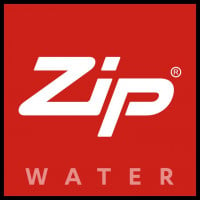-
Australia
Copyright © 2025 Powered by BCI Media Group Pty Ltd
Confirm Submission
Are you sure want to adding all Products to your Library?
Contact Detail

Drinking water for the planet
What is the most environmentally friendly way to drink water?
Drinking water is a universal right, and something none of us can live without. Being mindful of how we choose to drink our water can have a big impact on the planet.
What is the most sustainable drinking water option?
Tap water is the most sustainable way to drink water. Whether from a rainwater tank or from the mains supply, tap water should always be your first choice. Tap water is on-demand and requires no additional transportation or storage. Plus, Australia has some of the most stringent water quality standards in the world, whereas bottled water is far less regulated.
What is the environmental cost of bottled water?
Bottled water carries a huge environmental load. Australians use about 5 billion single-use bottles annually – about 325,000 tonnes worthi. It’s estimated just 36% of these are actually recycled, meaning the very vast majority end up decaying in the environment where, over the next 450 to 1000 years, they degrade into smaller and smaller pieces of plastic known as microplastics. These microplastics contaminate our soils and waterways, are consumed by animals and end up in the food chain. By 2050, plastic in the ocean is likely to outweigh all fish in the seaii.
What is the impact of bottled water production?
According to Clean Up Australiaiii, it takes 250ml of oil and three litres of water to make one litre of bottled water. There is a large consumption of energy in capturing water, conveying to the bottling plant, and treating it prior to bottling. Additionally, for bulk sales, bottled water is wrapped in yet more plastic (contributing to the 274,000 tonnes of soft plastics consumed in Australia each yeariv) and shipped to retailers. Transportation racks up carbon kilometres, as does point-of-sale refrigeration. A University of Queensland article notes the total energy required in the production of bottled water is 5.6-10.2 MJ per litre, compared to tap water, which typically uses 0.0005MJ per litre in treatment and distribution. In Australia, our use of bottled water generates more than 60,000 tonnes of greenhouse gasesv.
What is the economic cost of bottles vs tap?
The remarkable thing about tap water is that it is around 2000 times cheaper than bottled watervi. Depending on where you buy it, a bottle of water can cost around $2.50, compared to tap water, which costs a few cents per litre. Switching to tap could potentially save you hundreds of dollars each year.
What about filtered water?
Filtered water is a great way to improve the quality of your tap water. However, not all filters are created equally, and not all are good for the environment. Considerations include how often the filters need to be replaced and whether they can be regularly recycled. Zip’s MicroPurity water filters can eliminate up to 99.8% of contaminants, ensuring pure-tasting water that lasts for 6-12 months with residential usage.
What is the most sustainable way to filter water?
Filtering water at the tap means you are filtering drinking water as you use it, without the need to store or refrigerate. Zip’s closed refrigeration forced air cooled systems are 100% water efficient, with rapid chilling and heat transfer capabilities delivering consistently colder chilled water. Patented Zip PowerPulse™ technology ensures perfect boiling temperature by delivering instantaneous small energy bursts efficiently, instead of overheating and cooling, which wastes energy and results in boiling water at inconsistent temperatures.



